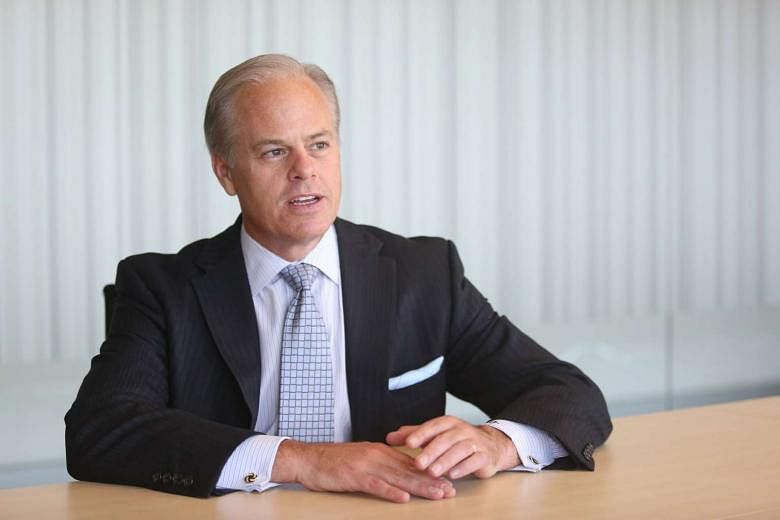SINGAPORE - Singapore is well placed to transform itself into a digital economy because of government support for innovation, good business environment and a globally connected technology infrastructure.
Mr Mike Gregoire, chief executive of software firm CA Technologies, said these factors prepare Singapore companies to use digital technologies to create new revenue streams, capture market share and develop a loyal user base.
"Singapore has the capability to become an entrepreneurial hub because there is no shortage of ideas here," said Mr Gregoire who was here recently to visit customers. CA, formerly known as Computer Associates International, was founded in 1976 and provides software to support IT systems and for application development.
The country has become a hub for a number of different areas from education to commerce. It can do this because it sits between east and west and a stable economy and government. More importantly, it has the trust of the Asian nations which makes it easy for multinational corporations to do business here and in the region, he added.
With a high penetration of broadband and tech savvy people, Singapore companies are well-placed for digital transformation.
"The government has done a phenomenal job, making it attractive for Singaporeans and other countries do business and technology development work here. It also has a very robust immigration policy and the ability to attract talent on global basis which is important when organisations need people for digital transformation projects," he said.
His comments are based on a survey CA conducted earlier this year to identify the leading countries in digital transformation. Singapore emerged the leader out of 10 countries which included Australia, Taiwan, Indonesia and Hong Kong. It is in the disruptor category, the top of three categories. The other two are challengers and mainstream.
Singapore is described as a disruptor because of intellectual property protection, ease of doing business, and high internet and mobile penetration.
According to a 2016 survey of 400 CEOs undertaken by research house Gartner, Asia-pacific CEOs place technology as a key priority for this year. A third of them realise that they may not be in business in 2020 having been overtaken by some other companies,
In Budget 2016, Finance Minister Heng Swee Keat stressed that companies must be ready to transform themselves or be left behind. He reminded businesses that the onslaught of technology will result in never seen before companies eclipsing the traditional players. Hence they must leverage technology and innovation to ready themselves for the future.
Mr Gregoire pointed out that companies do not have the luxury of time to think about digital transformation. "The compression of innovation time is acute. We don't know what is the next big thing that will come in 24 months. So we must be ready to move fast."
Hence companies must be able to develop new digital solutions in weeks rather than months,
He advised businesses to have a technology strategy to digitalise their operations. A key factor in technology today is cloud computing which enables new services to be offered quickly and more affordably across many countries.
Describing the technology environment today as application economy, he said organisations are now using applications to create new products and services, to collect data for insights into market and consumer behaviour and to engage customers.
Applications must also be continually improved to keep pace with market and customer usage patterns, he added.
This means companies need software tools that can help companies undertake development in weeks instead of months.
Over and above application development, he cited cybersecurity as critical to digital businesses to prevent hackers from stealing customer identifies and intellectual property. Businesses are in a race where the good guys are trying to identify cyber threats and isolate them.
The reality is that the creativity of bad guys is challenging the good guys. He advised organisations to look at two issues of which the first is the security hygiene factor.
"Make sure that companies have strong identity management systems so that they know who are the authorised to get into the corporate networks. Second, companies must work on predictive analytics which looks at user behaviour and anomalies to detect and predict fraud."


